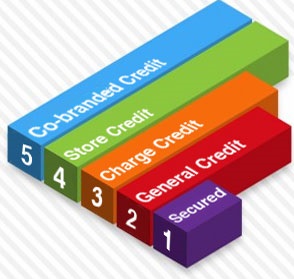 How to Climb Out of Personal Debt
How to Climb Out of Personal DebtAt the latest Financial Empowerment Credit Building and Repair Boot Camp the speaker was Ruth VanDerostyne, owner and founder of Financial Education Services, a credit repair company in the Bay Area.
She started the evening by telling guests her own story of financial woe. In the early 2000s, Ruth was the owner of a successful real estate business. But like many others she saw her finances suddenly take a turn for the worst during the financial crash of the early 2000s, and she was forced to go into bankruptcy.
But her story is one of resilience, not failure. She told attendees that “Yes, we fall down…but there is a way to come out of it.” She then recounted the steps she took to rebuild her life after adversity. When her business failed, she met with various credit /financial advisors to help her mitigate the damage. It didn’t take her long to realize that there were a lot of credit scams out there.
Realizing there were others out there, struggling and in need of genuine financial guidance, she made it her mission to offer inexpensive, easily accessible credit repair and advice to help others.
Ruth went on to tell her audience that if anyone says they can “fix your credit fast,” they’re probably not a reputable credit advisor. Credit repair isn’t an overnight fix, she says. It may take as long as 6-12 months or longer to improve your credit. But of course it’s worth it – opening the door to better interest rates on credit cards, homes, and more.
 So, are you ready to take the road to credit recovery? Here are a few tips and tidbits you can use to start you on your way.
So, are you ready to take the road to credit recovery? Here are a few tips and tidbits you can use to start you on your way.1) Credit reports often have errors.
So, check your credit reports every 4-6 months to see what’s on your credit. Credit card debt in the state of California can stay on your record for 7 years, after that they have to take it off. Have debt 7 years or older on your report? Contact each of the 3 credit agencies and ask them to delete it.
(FYI: If it’s a court judgement it can stay for 10-20 years, depending on what it is. More on that later.)
2) Avoid using online companies like annualcreditreport.com that offer your credit report for a fee.
They do “hard” credit checks, which can “ding” your credit. (every credit check run on you takes points off your credit). Also, they often don’t show everything you’d see on a full report like the one you get from the 3 main credit check agencies (Equifax, TransUnion, and Experian)
3) Be Careful When Settling Debt
Now, if you’ve got a still active account with debt that you don’t think you’ll be able to pay on time or in its entirety you should make a deal with your creditor to pay your debt, as  long as they haven’t gotten a judgment against you or sold your debt to a collection agency. See if you can get an extended payment plan. Or if your life situation has changed and you think you can’t pay it off, you may get a large portion of your debt written off if you offer to pay them a percentage of what you owe. Call or write a letter to your creditor. It’s important to keep open lines of communication between you and your creditor.
long as they haven’t gotten a judgment against you or sold your debt to a collection agency. See if you can get an extended payment plan. Or if your life situation has changed and you think you can’t pay it off, you may get a large portion of your debt written off if you offer to pay them a percentage of what you owe. Call or write a letter to your creditor. It’s important to keep open lines of communication between you and your creditor.
4) More about Judgements.
If someone has gotten a court judgement against you for a debt it’s probably best not to dispute it.
Say you have an old debt. Your creditor sued and got a judgement against you that lasts for 10 years. It’s now 8 years and 10 months into that judgement, meaning you’ve got a little over a year before it drops off. But you want to get a new car and would like to get a better loan rate. It’s tempting to contact your creditor and see if you can make a deal for them to drop it for less money so you can fix your credit fast.
Don’t. Wait until you’re sure the judgement is over.
Major Creditors have hundreds of thousands (or millions) of clients that can’t pay. If you say nothing, they may not even notice your debt is about to expire. But if you contact them they’ll realize your judgement is about to expire, and possibly reopen your file and come after you all over again for the debt. If you have other lingering debt that’s not in collection or has judgement, try to pay it down instead.
5) Avoid dealing with collection companies.
Creditors often write off delinquent credit, then sell it to creditors. So, then all of a sudden, you get a bill from a collection company saying they now own your debt. Perhaps you’re in a better financial situation, so you make them an offer, thinking you can fix your credit. The collection company happily takes it, and you pay, relieved, thinking that’s over.
Then, suddenly the original creditor contacts you saying they want their money. You tell them you made a deal with the collection company they sold your debt to. They say it doesn’t matter.
If you try to make a deal with the original debtor and they refuse to take your offer, get it in writing.
If they agree to take a portion of the offer, get that in writing too. That way if they ever come after you, saying you owe them money you can go to court and show proof that you tried to negotiate.
Ruth said that “judges don’t like bill collectors any more than we do.” If the court sees that you’ve tried to make a good faith effort to pay and it was refused, they may make your creditor accept an offer that’s even less than what you originally offered.
7) How Much Credit Do You Really Need
You may not need to increase your credit score that much to get your dream home or auto. You can get a loan with a FICO as low as 620 or 640. You will of course pay higher interest rates, but you can still get your loan.
8) Contact All the Credit Bureaus When Trying to Calculate Your Real Credit Score
According to credit sesame free research, to get a true sense of what your credit score is, check all 3 credit report agencies. Why? Not all creditors report to all 3 bureaus. So one department store card may report to Experian, while another to TransUnion. Loan providers often pull all 3 scores, then take the middle one…not the highest or the lowest.
 9) Diversify Your Credit Lines
9) Diversify Your Credit Lines
Want to build excellent credit? Try to have at least 4 credit lines. According to Ruth, the ideal is to have 1 or 2 department store or major credit cards (like Visa, Amex, MasterCard); then have 1 or 2 other lines of credit like a car loan and a home loan.
But having 4 credit cards will work too. Just make sure you keep a low balance and pay on time.
10) Check Your Report Before Trying to Make a Purchase On Credit
Don’t forget – look at your credit report before applying for major credit. Your credit score drops a few points with every credit check from lenders. So, if you apply for a lot of cards that you don’t end up qualifying for, not only will you not have the credit or loan, your credit score will dip even lower. 5-9 inquiries will drop your score -20 points and will stay on your credit records for 2 whole years.
If you’re shopping for a car for example, rather than going from dealer to dealer and having each one pull your credit report individually, get your report directly from the credit agency (or from a reputable credit advisor like Ruth, more on that later). Then walk in with your credit report in your hand. They can look at the report and tell you what you’re eligible for based on that.
Get Even More Credit Repair & Financial Tips
For more information on how you can achieve rock solid finances, you can contact Ruth at www.fersexperts.com to learn more about her reasonably priced credit repair services.
And don’t forget, you can also attend one of our other free financial workshops. We’ve partnered with SF Housing Development Corporation to offer free financial workshops here each month. Catch the Financial Empowerment Credit Building and Repair Boot Camp on the 1st Thursday and Financial Empowerment Rental Readiness Boot Camp on the 4th Thursday, every month, at the Western Addition Career Center at 1449 Webster Street. The monthly workshops start at 5pm and cover a variety of topics related to housing and financial empowerment.
Equifax: https://www.equifax.com
Experian: http://www.experian.com
Transunion: http://www.transunion.com
By Merrie Triplett